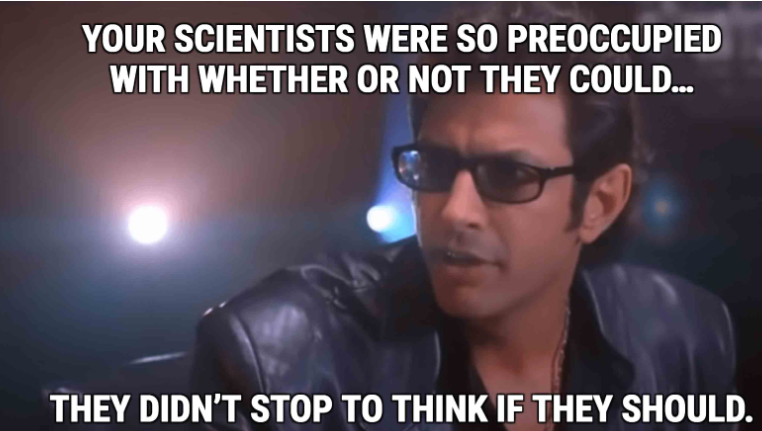
In the dynamic realm of talent acquisition, the role of Artificial Intelligence (AI) is ever-expanding, offering innovative solutions to age-old sourcing challenges. Yet, with the power of AI comes the responsibility to navigate its legal and ethical implications carefully.
In 2023, states such as Connecticut, Maryland, and Texas have become pioneers in legislating AI’s application within various sectors, including recruitment, highlighting the importance of compliance and transparency in the use of AI technologies. In this article we will discuss some of the tools we use today, the new laws and how to keep up with what is going on.
In the pursuit of navigating the intricate legal and ethical terrain that surrounds the use of Artificial Intelligence (AI) in talent acquisition, understanding and leveraging the right AI tools is pivotal. Tools such as ChatGPT, Claro, HireEZ, Textio, exemplify the diverse applications of AI in enhancing sourcing strategies while adhering to compliance and ethical standards. In considering the tools we use today I think we need to evaluate our risk tolerance carefully.
Automation of tasks is low risk high reward and the place I look for automation to be useful first. Many reading this have used ChatGPT or another LLM to write an email. The next level of assistance is with data and planning. This is a relatively low risk area as well. We sourcers aren’t great at data but we need to be. AI can offer us reports and data and the ability to do analysis of the data we have, without being experts ourselves. My experience with our building an AI analyst has taught me that if you give AI data and instructions it can very reliably and consistently produce professional results. Having AI help you get ready for your intake meeting and help you create your sourcing strategy is something you can actually do today! Below I’ve listed out some of the AI tools that could be useful for Sourcers. There are many other tools that that will do things like schedule interviews, find contact information and, gasp, conduct phone interviews. Below is a list of some of the AI powered tools that can help sourcers today.
AI Tools in Talent Acquisition:
- ChatGPT: A conversational AI model developed by OpenAI, ChatGPT can be utilized in recruitment for automating initial candidate screenings, answering FAQs, and providing a more engaging and interactive application process for candidates.
- Claro: This workforce analytics tool offers deep insights into labor market trends, enabling recruiters to make data-driven decisions. Its ability to analyze vast datasets can help organizations identify talent pools and competitive benchmarks. The new AI analyst allows the creation of market reports that inform on supply and demand as well as set salary expectations against the market.
- HireEZ: Formerly known as Hiretual, HireEZ is an AI-powered outbound recruitment platform. It assists recruiters in sourcing candidates across various platforms, automating the initial engagement process, and providing valuable insights to tailor recruitment strategies effectively.
- Textio: This augmented writing platform uses AI to analyze job descriptions and other recruitment-related communications. Textio guides users in optimizing their language to be more inclusive and appealing to a diverse candidate pool, directly impacting the quality and diversity of applicants.
Keeping Up with AI Laws:
To ensure compliance with evolving AI laws and regulations, sourcing professionals must adopt a multifaceted approach to continuous learning and adaptation.
- Subscribe to Legal Updates: Follow reputable legal blogs, newsletters, and websites that focus on employment law and technology. Platforms such as JD Supra and Lexology provide regular updates on legal developments in AI and employment.
- Join Professional Networks: Engage with professional groups on platforms like LinkedIn, where legal experts and peers share insights and updates on AI legislation affecting recruitment.
- Attend Industry Conferences: Participate in HR and recruitment technology conferences, seminars, and webinars. Events like HR Tech Conference and SHRM Technology Conference often feature sessions on legal compliance in AI use.
- Leverage Government Resources: Regularly visit websites of legislative bodies and organizations such as the National Conference of State Legislatures (NCSL) for the latest on AI laws and guidelines.
- Educational Courses: Enroll in courses and certifications focusing on legal and ethical aspects of AI in recruitment. Many universities and online platforms offer specialized programs designed for HR professionals.
Ethical AI: A Vision for the Future
As we stand at the crossroads of technology, law, and ethics in recruitment, the path forward demands a balanced approach. Embracing innovation while adhering to ethical and legal standards is not merely a compliance exercise but a strategic advantage.
By championing transparency, fairness, and inclusivity, sourcing professionals can steer the recruitment industry towards a future where technology enhances human potential, and legal frameworks foster trust and equity.
As AI continues to reshape the recruitment landscape, let us embark on this journey with a commitment to excellence, integrity, and respect for the laws that guide us. In doing so, we not only navigate the legal and ethical landscape of AI in sourcing but also pave the way for a more just and innovative future in talent acquisition.
